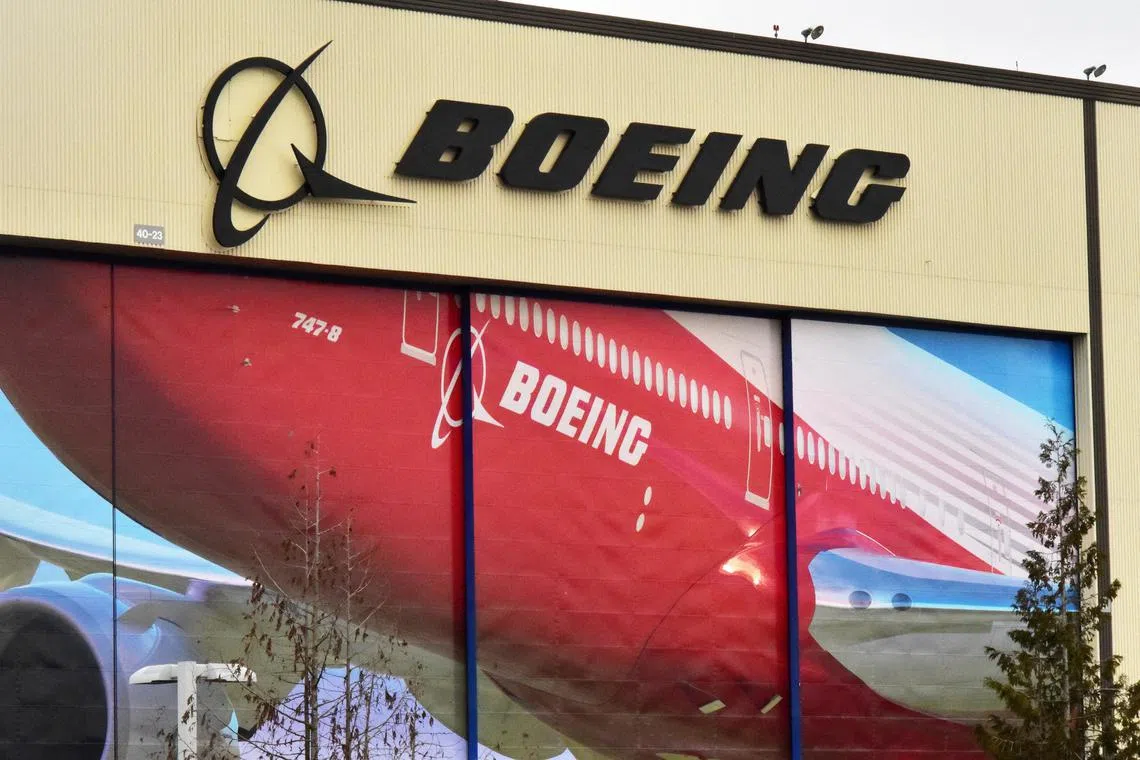Boeing launches data tool to chart path to net-zero emissions target
Sign up now: Get ST's newsletters delivered to your inbox

The tool, known as Cascade, lets users adjust different variables – such as the use of sustainable fuels or electric propulsion – to better understand how they could result in decreases to carbon emissions over time.
PHOTO: REUTERS
Follow topic:
WASHINGTON – Boeing said on Wednesday that it is rolling out a data modelling tool aimed at helping airlines and policymakers determine the quickest, most efficient path to reducing aviation emissions to zero by 2050.
The tool, known as Cascade, allows users to adjust different variables – such as the use of sustainable fuels or electric propulsion, the replacement of older-model aircraft, operational improvements and other advanced technologies – to better understand how those factors could result in decreases to carbon emissions over time.
Boeing unveiled a beta version of Cascade in July 2022 but it was not publicly available. Over the past year, the model has been improved so users can project data to 2050 instead of visualising only a single point in time, the company said.
Boeing officials believe it will take a “collection” of technology or process changes to move the needle on emissions, Boeing chief sustainability officer Chris Raymond said on Wednesday during an event hosted by the US planemaker and attended by airline and government officials.
But Mr Raymond added that sustainable aviation fuel provides the most immediate pathway for the aviation sector to cut its carbon footprint, as it can immediately be used by airlines, while advances in electric or hydrogen-powered aircraft may not be mature enough to meaningfully reduce emissions ahead of 2050.
The public launch of Cascade comes just days after US Transportation Secretary Pete Buttigieg met his counterparts from Canada, Britain and Singapore at the Asia-Pacific Economic Cooperation forum to discuss investments in sustainable aviation fuel (SAF).
On Tuesday, Reuters reported that European Union countries are set to finalise SAF targets for airports despite some pushback from airlines.
SAF – which is derived from waste feedstocks like cooking oil – remains expensive and scarce, with total production in the United States in 2022 making up less than 0.1 per cent of the total jet fuel used by major US airlines, according to the Government Accountability Office.
“Our intent is to scale SAF and help it scale by first... examining what has to change in an airplane to be 100 per cent compatible with (SAF),” Mr Raymond said. “We have to help advocate for the policies that will help the industry scale up (production).”
Boeing announced plans in February to double its SAF purchases in 2023, buying 21.2 million litres of fuel from Neste.

